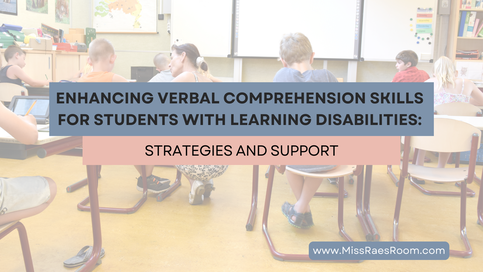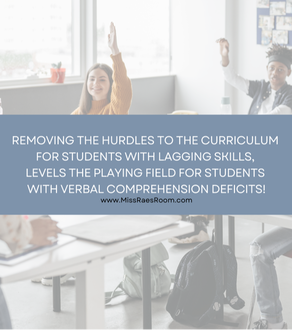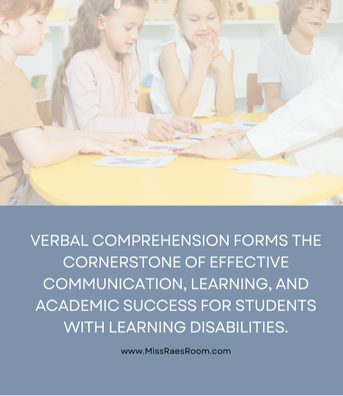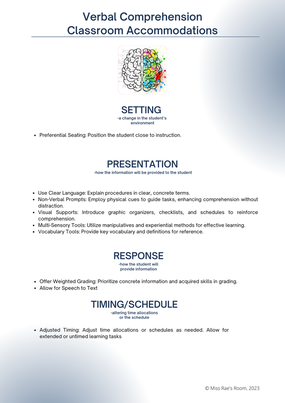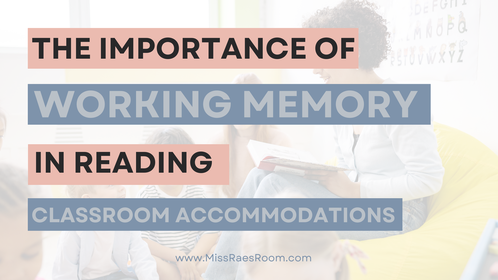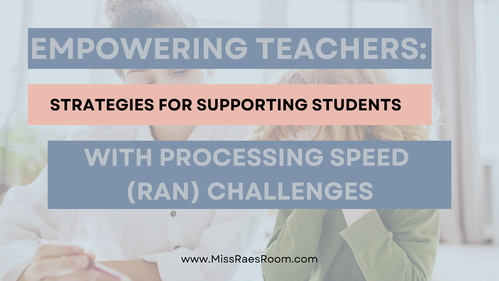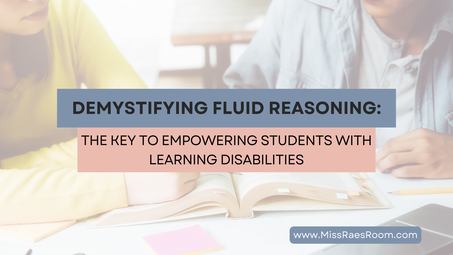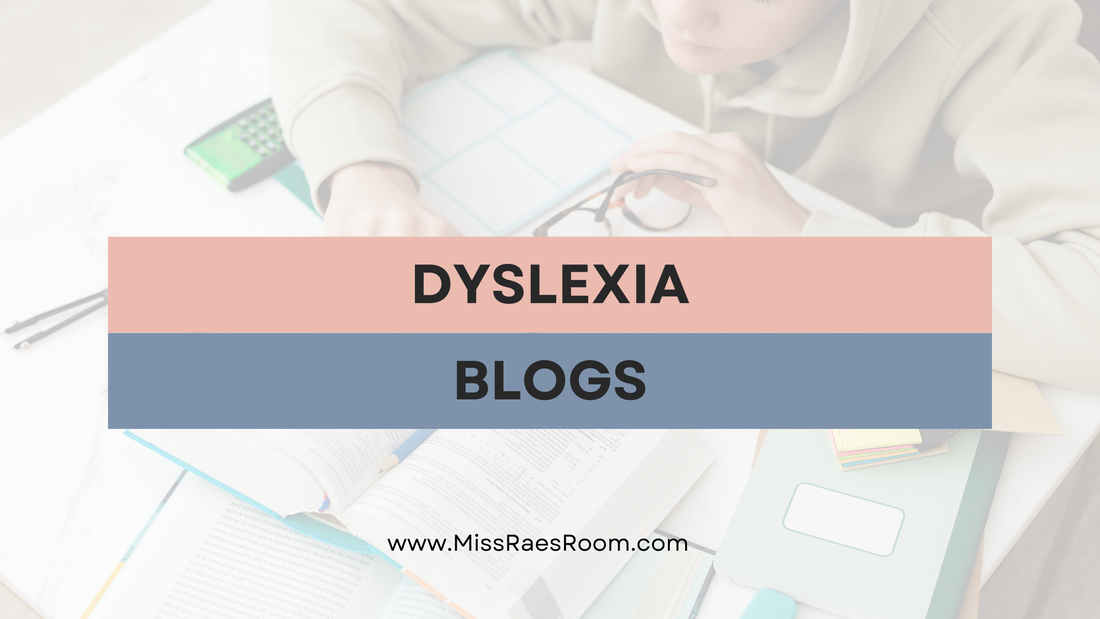Enhancing Verbal Comprehension Skills for Students with Learning Disabilities: Strategies and Support
Enhance Verbal Comprehension Skills for Students with Learning Disabilities: Uncover Strategies to Foster Language Proficiency, Communication, and Academic Success. Explore Assessment, Impact, and Proven Instructional Approaches in this Comprehensive Guide.
Unlock the potential of your students with learning disabilities by delving into the realm of Verbal Comprehension. This pivotal skill empowers students to grasp language, communicate effectively, and excel in various academic spheres. In this comprehensive guide, discover the nuances of Verbal Comprehension, its profound impact on learning, assessment methods, early detection of challenges, and proven strategies to foster its development.
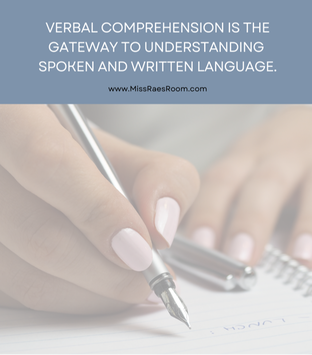
Understanding Verbal Comprehension:
Verbal Comprehension is the gateway to understanding spoken and written language. It encompasses the ability to comprehend words and phrases, paving the way for effective communication and knowledge acquisition.
Students lacking strong Verbal Comprehension skills may face challenges in intelligence testing and academic performance.
Areas of Verbal Comprehension:
Verbal Comprehension skills encompass vital areas:
Verbal Comprehension is the gateway to understanding spoken and written language. It encompasses the ability to comprehend words and phrases, paving the way for effective communication and knowledge acquisition.
Students lacking strong Verbal Comprehension skills may face challenges in intelligence testing and academic performance.
Areas of Verbal Comprehension:
Verbal Comprehension skills encompass vital areas:
- Categorical Reasoning: Recognizing similarities and assigning words to common categories.
- Vocabulary: Defining and understanding commonly used words.
- Verbal Intelligence: Measured through verbal reasoning on IQ tests, including word definitions, recalling stories, and factual questions. This aspect is evaluated through the Verbal IQ or Verbal Comprehension Index (VCI) of intelligence tests.
Assessment of Verbal Comprehension:
The Verbal Comprehension Index (VCI) of the WISC-V evaluates semantics, vocabulary, and word knowledge. This assessment offers insights into students' general and crystallized intelligence. Strong VCI scores correlate with intelligence, while lower scores may indicate difficulties in expressing thoughts and reasoning.
Impact and Signs of Verbal Comprehension Challenges:
Verbal Comprehension underpins numerous aspects of academic and daily life interactions. In an educational setting, challenges in verbal comprehension can lead to weakened reading abilities, difficulties in articulating thoughts, writing frustration, impaired spelling and vocabulary, and even the inadvertent loss of previously acquired words and concepts.
The Verbal Comprehension Index (VCI) of the WISC-V evaluates semantics, vocabulary, and word knowledge. This assessment offers insights into students' general and crystallized intelligence. Strong VCI scores correlate with intelligence, while lower scores may indicate difficulties in expressing thoughts and reasoning.
Impact and Signs of Verbal Comprehension Challenges:
Verbal Comprehension underpins numerous aspects of academic and daily life interactions. In an educational setting, challenges in verbal comprehension can lead to weakened reading abilities, difficulties in articulating thoughts, writing frustration, impaired spelling and vocabulary, and even the inadvertent loss of previously acquired words and concepts.
|
Challenges in this realm can manifest as:
|
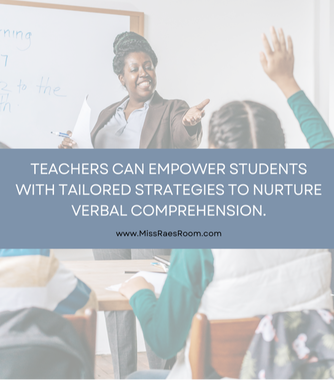
Strategies for Verbal Comprehension Enhancement:
Removing the hurdles to the curriculum for students with lagging skills, levels the playing field for students with verbal comprehension deficits! Teachers can empower students with tailored strategies to nurture Verbal Comprehension.
Removing the hurdles to the curriculum for students with lagging skills, levels the playing field for students with verbal comprehension deficits! Teachers can empower students with tailored strategies to nurture Verbal Comprehension.
- Activate Background Knowledge: Relate new topics to existing information, triggering connections for improved comprehension.
- Non-Verbal Prompts: Employ physical cues to guide tasks, enhancing comprehension without distraction.
- Visual Supports: Introduce graphic organizers, checklists, and schedules to reinforce comprehension.
- Multi-Sensory Tools: Utilize manipulatives and experiential methods for effective learning.
- Vocabulary Tools: Provide key vocabulary and definitions for reference.
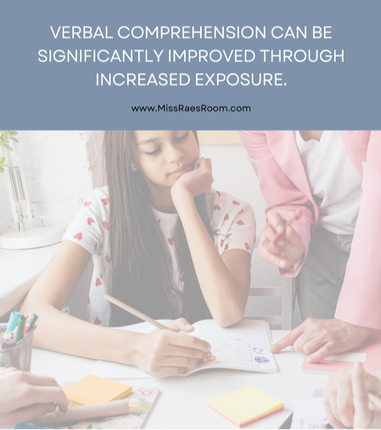
Instructional Approaches for Skill Enhancement:
The promising aspect of verbal comprehension deficits is that these skills can be significantly improved through increased exposure. If your students face challenges with vocabulary and word knowledge, it could simply be a matter of requiring more focused and deliberate practice.
Empower your teaching with these instructional approaches:
The promising aspect of verbal comprehension deficits is that these skills can be significantly improved through increased exposure. If your students face challenges with vocabulary and word knowledge, it could simply be a matter of requiring more focused and deliberate practice.
Empower your teaching with these instructional approaches:
- Teach Comprehension of Language: Address underlying language weaknesses to bolster reading comprehension.
- Teach Vocabulary: Employ multisensory strategies to expand word knowledge.
- Teach Thinking Strategies: Equip students with cognitive tools for sustained attention and critical thinking.
- Reciprocal Teaching: Foster leadership and reflective thinking through guided discussions and reading sessions.
- Directly Teach Comprehension Skills: Instruct students in sequencing, inference, story structure, and more.
|
Click HERE to download strategies to Verbal Comprehension in your classroom!
Verbal Comprehension is the gateway to understanding spoken and written language. It encompasses the ability to comprehend words and phrases, paving the way for effective communication and knowledge acquisition. Verbal Comprehension forms the cornerstone of effective communication, learning, and academic success for students with learning disabilities. Armed with insights into this crucial skill and armed with research-based strategies, educators can create enriching learning environments that empower students to overcome challenges and thrive. |
By fostering Verbal Comprehension skills, educators can open doors to enhanced language proficiency and comprehensive understanding, equipping students for a successful journey in academia and beyond.
Happy Teaching!
Miss Rae
Happy Teaching!
Miss Rae
